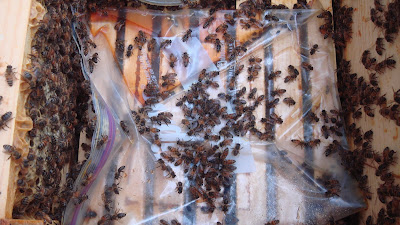People have written me from all over the world - both in comments on the blog itself and in email behind the scenes.
This blog has had
 37,344 hits so far this year (and there will be between 60 - 100 more tomorrow).
37,344 hits so far this year (and there will be between 60 - 100 more tomorrow).The most popular places people go to on this blog (besides the first page) are:
- My video on how to harvest honey via crush and strain
- My video on how to make a Sonny-Mel small hive beetle trap
- My video on the solar wax melter
- My video on how to harvest chunk honey
Outside of views on the blog, on Google's YouTube, the crush and strain honey video has been viewed 811 times, the solar wax melter video has been viewed 782 times, the chunk honey video has been viewed 488 times and the small hive beetle trap 495 times.
Perhaps the biggest compliment on the blog came from Bee Culture magazine in October 2007 when my blog was featured first in an article on Blogs and Web Pages. I was completely surprised and found out about it through a post someone put on Beemaster! I scanned the page so that you can see it if you don't subscribe to the magazine.
As a beginning beekeeper, it is my pleasure to share my trials and tribulations, catastrophes and triumphs with all of you.
Thank you for reading my blog in 2007.
See you next year!
Linda






































